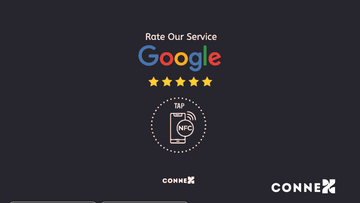How to Streamline Your Professional Contact Management for Better Efficiency
by Shopify API on May 03, 2024

Importance of professional contact management
Professional contact management is crucial for organizing and accessing your contacts efficiently. It helps you stay connected with clients, colleagues, and industry contacts effortlessly. By having a structured system in place, you can easily retrieve contact details, track interactions, and nurture professional relationships effectively. Efficient contact management leads to improved communication, better networking opportunities, and streamlined collaboration.
Common challenges faced
Managing professional contacts can be tricky for many people. Some common challenges faced when it comes to contact management include difficulty in organizing contacts effectively, loss of important contact information due to disorganization, and time-consuming manual data entry. These challenges can lead to missed opportunities, communication errors, and overall inefficiency in maintaining professional relationships.
Benefits of streamlining contact management
Streamlining your contact management system can save you time and make it easier to stay organized. By organizing your contacts efficiently, you can quickly find the information you need, communicate effectively, and build stronger relationships with your professional network. Benefits of streamlining contact management include:
- Time-saving: Having all contact information in one place eliminates the need to search through multiple sources.
- Improved communication: With a streamlined system, you can easily access contact details and reach out promptly.
- Enhanced productivity: Efficient contact management allows you to focus on essential tasks instead of searching for information.
- Better networking: Keeping your contacts organized helps you maintain valuable connections and expand your network effectively.
Choosing the right contact management system
When choosing a contact management system, consider the features that will suit your needs best. Look for a system that offers customizable fields, easy import and export options, and integration with your existing tools like email and calendar. Make sure the system is user-friendly and provides good customer support in case you need help. Compare different options to find the one that fits your workflow and budget.
Setting up your contact database
When setting up your contact database, start by organizing your contacts into categories like clients, colleagues, vendors, and leads. Keep all contact details in one centralized location to easily access them when needed. Consider using contact management software like Google Contacts or HubSpot to streamline the process and ensure all information is up-to-date. Regularly review and update your database to maintain accuracy. Remember, a well-maintained contact database can significantly improve your efficiency and productivity in managing professional relationships.
Organizing and categorizing contacts
When managing your professional contacts, it’s essential to organize and categorize them efficiently. This can help you save time and stay on top of your relationships. Here are some key tips to streamline your contact management:
- Create separate groups or categories for different types of contacts, such as clients, colleagues, or vendors.
- Use tags or labels to easily identify and sort contacts based on specific criteria, like their industry or location.
- Regularly update and clean your contact list by removing duplicates or outdated information.
- Utilize contact management software to centralize all your contacts in one place and access them easily. By implementing these strategies, you can enhance your professional relationships and boost your efficiency in managing your contacts.
Implementing time-saving strategies
To save time managing contacts, utilize software tools like customer relationship management (CRM) systems. CRMs can help centralize contact information, track interactions, and set reminders for follow-ups. Also, categorize contacts based on priority or relevance to streamline communication. Remember to regularly update and organize your contact database to ensure efficiency in your professional interactions.
Automating contact interactions
Automating contact interactions can save you time and ensure consistency in your communication. By using tools like CRM software or email automation platforms, you can schedule emails, set reminders for follow-ups, and track interactions with your contacts. This automation can help you stay organized, prioritize tasks, and focus on building stronger relationships with your professional contacts.
Integrating contact management with other tools
Integrating your contact management system with other tools like email, calendars, and project management platforms can drastically improve your workflow efficiency. By syncing all your important contacts with these essential tools, you ensure that you have all the information you need in one place. This integration allows for seamless communication and scheduling, reduces the risk of missed appointments or tasks, and ultimately leads to better organization and productivity in your professional life.
Evaluating and optimizing contact management efficiency
To boost your productivity when managing professional contacts, start by assessing your current contact management system. Identify areas for improvement, such as repetitive tasks that can be automated, outdated information that needs to be updated, or inefficient processes that can be streamlined. Prioritize organizing your contacts based on their importance or relevance to your work. Consider using digital tools like contact management software to centralize contact information, set reminders for follow-ups, and track communication history. By regularly reviewing and optimizing your contact management practices, you can enhance your efficiency and effectiveness in maintaining professional relationships.




